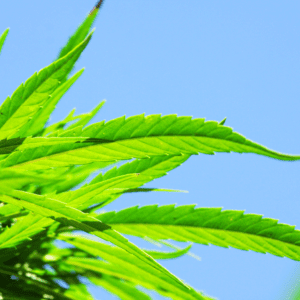Medical Cannabis Sales Impacted by Illegal Cannabis, Say Growers

State Panel Considers Summer Study on Synthetic THC Impact in South Dakota
The growing concern over synthetic THC products and their impact on South Dakota’s medical marijuana industry took center stage at a recent meeting of the state’s Medical Marijuana Oversight Committee in Pierre. The committee, comprised of legislators, health officials, and industry representatives, discussed the challenges posed by hemp-derived THC products like delta-8 and delta-10, which mimic the effects of traditional marijuana but operate outside the rigorous regulatory framework governing medical cannabis.
Health Risks and Market Impact
During the meeting, witnesses, including business owners and the director of the State Public Health Laboratory, raised alarm over the proliferation of synthetic THC products. These products, which can be found in various forms such as smokable flower, pre-rolled joints, vape oil, and edibles, are sold without the stringent testing and security measures that are mandatory for state-sanctioned medical marijuana. This lack of oversight has sparked concerns about potential health risks for consumers who may be unaware of the unregulated nature of these alternatives.
“These products are widely available and can be purchased by individuals who may not fully understand the risks involved,” one business owner testified. “Unlike medical marijuana, which undergoes extensive testing to ensure its safety and efficacy, synthetic THC products are not subject to the same level of scrutiny.”
The availability of these unregulated alternatives is also having an economic impact on the state’s legal marijuana market. With synthetic THC products often being sold at lower prices and without the need for a medical marijuana card, there is a fear that demand for regulated medical marijuana could decrease. This could undermine the state’s efforts to maintain a robust and secure medical marijuana program that benefits both patients and the economy.
Legislative and Regulatory Challenges
The surge in synthetic THC products can be traced back to the 2018 federal farm bill, which authorized hemp cultivation across the United States. This legislation inadvertently opened the door for the production of hemp-derived THC variants, such as delta-8 and delta-10, which have since flooded markets in states like South Dakota. These products exploit a legal loophole, as they are derived from hemp rather than marijuana, allowing them to bypass many of the regulatory hurdles that apply to cannabis.
In response to the growing concerns, South Dakota enacted House Bill 1125 in July 2023. This law aims to restrict the sale of certain synthetic THC variants, but enforcement has proven challenging, and several variants remain legally available. The complexity of regulating these products, coupled with their widespread popularity, has led the Medical Marijuana Oversight Committee to consider further legislative action.
One proposal under discussion is a summer study in 2025, which would provide lawmakers with the time and resources needed to thoroughly investigate the impact of synthetic THC products on the state’s medical marijuana program. This study could result in more comprehensive legislation aimed at closing loopholes and ensuring that all THC products, regardless of their origin, are subject to appropriate regulations.
Potential Federal and Local Solutions
As the state grapples with the challenges posed by synthetic THC, some experts believe that a broader, federal-level solution may be necessary. Comprehensive federal regulations could help standardize the industry across all states, eliminating the patchwork of laws that currently governs hemp-derived THC products.
“Federal regulations would provide clarity and consistency, ensuring that all THC products are subject to the same safety standards,” said the director of the State Public Health Laboratory. “Until that happens, however, South Dakota may need to take the lead in crafting its own laws to better regulate these products and protect consumers.”
Local law enforcement officials and public health leaders echoed this sentiment, emphasizing the need for well-crafted legislation that can withstand legal challenges and prevent regulatory evasion. They also stressed the importance of clear communication with the public to reduce market confusion and ensure that consumers are aware of the differences between regulated medical marijuana and unregulated synthetic THC products.
Looking Ahead
The Medical Marijuana Oversight Committee’s discussion signals a growing recognition of the challenges posed by synthetic THC products in South Dakota. While the state has made strides in regulating medical cannabis, the rise of hemp-derived alternatives has exposed gaps in the current legal framework that need to be addressed.
As the committee moves forward, the proposed summer study in 2025 could play a crucial role in shaping future legislation. By bringing together lawmakers, industry experts, and public health officials, the study would provide a platform for developing a comprehensive approach to regulating synthetic THC products and safeguarding the integrity of South Dakota’s medical marijuana industry.
In the meantime, the state will continue to monitor the market and enforce existing laws while exploring additional measures to protect consumers and ensure a level playing field for all players in the cannabis industry. As the conversation around synthetic THC evolves, South Dakota’s response could serve as a model for other states grappling with similar issues.











